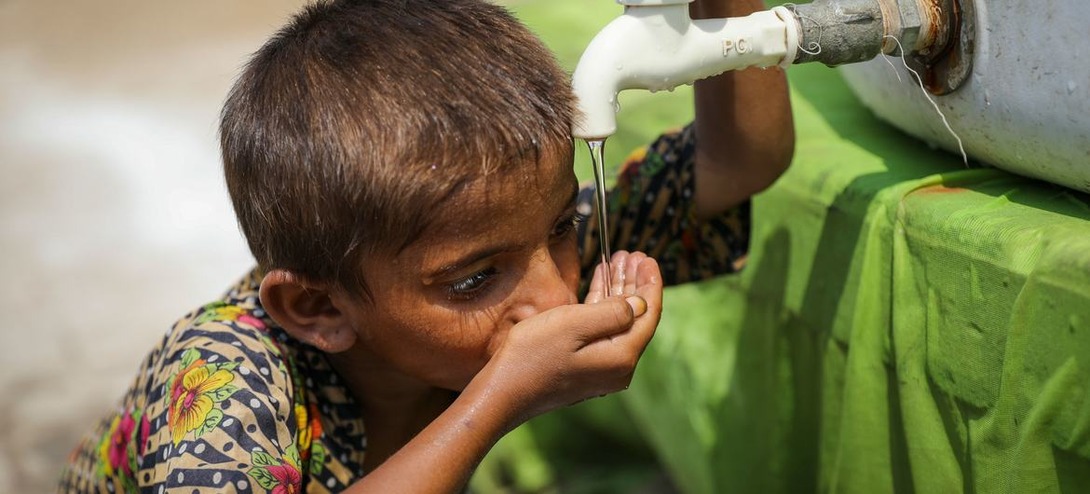The United Nations has said that over 10 million people in Pakistan still do not have access to safe drinking water in areas affected by the unprecedented floods in 2022 that claimed thousands of lives and left millions homeless.
In a report, United Nations International Children’s Emergency Fund (UNICEF) said the families living the flood-hit areas have “no alternative but to drink and use potentially disease-ridden water”.
The report added that access to clean drinking water is not a privilege but a basic human right, while warning the authorities in Pakistan of outbreaks of water-borne diseases, including cholera, diarrhea, dengue, and malaria.
UNICEF also noted that unsafe water and poor sanitation are major factors behind malnutrition. The majority of child deaths globally are linked to malnutrition while half of all malnutrition cases are related to infections caused by water-borne diseases, the UNICEF added.
Over 1.5 million boys and girls are already severely malnourished in the country’s flood-affected areas and these numbers are expected to rise.
The report added that apart from the health hazard, the lack of proper toilets disproportionately impacts children, adolescent girls, and women since defecating outdoors is riskier for them due to shame and harm.


